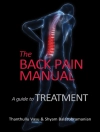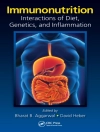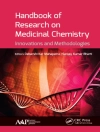The book Intelligent Healthcare: Infrastructure, Algorithms, and Management® cover a wide range of research topics on innovative intelligent healthcare solutions and advancements with the latest research developments. Data analytics are relevant for healthcare to meet many technical challenges and issues that need to be addressed to realize this potential. The advanced healthcare systems have to be upgraded with new capabilities such as data analytics, machine learning, intelligent decision making, and more professional services. The Internet of Things helps to design and develop intelligent healthcare solutions assisted by security, data analytics, and machine learning.
This book will provide federated learning, Data-driven infrastructure design, analytical approaches, and technological solutions with case studies for smart healthcare. This book aims to attract works on multidisciplinary research spanning across computer science and engineering, environmental studies, services, urban planning and development, Healthcare, social sciences, and industrial engineering on technologies, case studies, novel approaches, and visionary ideas related to data-driven innovative learning and computing solutions and big medical data-powered applications to cope with the real-world challenges for building smart healthcare sectors.
Main Features:
Ø Immersive technologies in healthcare
Ø Internet of medical things
Ø Federated learning algorithms
Ø Explainable AI in Pervasive Healthcare
Ø New management principles using biomedical data
Ø Secured healthcare management systems
This book aims to set up a better understanding of data scientists, researchers, and technologists under innovative digital health. The reader can find out existing research challenges, current market trends, and low-cost technologies to smoothly address the digital health issue.
Daftar Isi
Chapter 1. Distributed and Big Health Data Processing for Remote and Ubiquitous Healthcare Services Using Blind Statistical Computing: Review and Trends on Blindness for Internet of Artificially Intelligent Medical Things.- Chapter 2. Computer Techniques for Medical Image Classifica-tion: A Review.- Chapter 3. Optimal Feature Selection for Computer-Aided Charac-terization of Tissues – Case Study of Mammograms.- Chapter 4. Breast Cancer Detection Using Particle Swarm Op-timization and Decision Tree Machine Learning Technique.- Chapter 5. Accountable, Responsible, Transparent Artificial Intelligence in Ambient Intelligence Systems for Healthcare.- Chapter 6. Intelligent elderly people fall detection based on modified deep learning deep transfer learning and Io T using thermal imaging-assisted pervasive surveillance.- Chapter 7. An Analytic Approach to Diagnose Heart Stroke Using Supervised Machine Learning Techniques.- Chapter 8. A Predictive Analysis for Diagnosis of COVID-19, Pneumoniaand Lung Cancer Using Deep Learning.- Chapter 9. Internet of Things in the Healthcare Applications: Overview of Security and Privacy Issues.- Chapter 10. Secure and Privacy-aware Intelligent Healthcare Systems: A Review.- Chapter 11. Secure data transfer and provenance for distributed healthcare.- Chapter 12. Blockchain Technology in Healthcare: Use cases Study.- Chapter 13. Integrating Artificial Intelligence and Blockchain for Enabling a Trusted Ecosystem for Healthcare Sector.- Chapter 14. Internet of Medical Things (Io MT): Applications, Challenges, and Prospects in a Data-Driven Technology.- Chapter 15. Healthcare Infrastructure in Future Smart Cities.- Chapter 16. Wearable Sensors and Pervasive Computing for Remote Healthcare.- Chapter 17. A wavelet-based robust medical image watermarking technique using whale optimization algorithm for data exchange through internet of medical things.- Chapter 18. Emergence of 3D Printing Technology in the Intelligent Healthcare Systems: A Brief Drug Delivery Approach.- Chapter 19. Efficient Physical Layer Techniques for Healthcare Applications: Co-operative Network Coding Algorithms and Modified Equalizers.- Chapter 20. Emerging Paradigm of Smart Healthcare in the Management of COVID-19 Pandemic and Future Health Crisis.- Chapter 21. E-Health System for Automatic Control of Travel Certificates and Monitoring of the Spread of COVID-19 in Tunisia.
Tentang Penulis
Dr. Chinmay Chakraborty is a Assistant Professor at Birla Institute of Technology, Mesra, India and Post-doctoral fellow of Federal University of Piauí, Brazil. He has published more than 150 conference presentations, journal papers, book chapters and books and organized more than 20 special issues in various journals including IEEE, Springer, IGI Global, CRC Press, Tech Science, MDPI etc. His main research interests include the Internet of Medical Things, Wireless Body Area Networks, Telemedicine, m-Health/e-health, and Medical Imaging.
Dr. Mohammad R. Khosravi is currently a researcher in the fields of communications, networking and computing systems. He is now a research associate for multimedia and networking at the Department of Computer Engineering, Persian Gulf University, Iran, and a part-time research engineer & consultant in IEI Company, Iran. His main interests include statistical signal and image processing, medical bioinformatics, radar imaging and satellite remote sensing, computer communications, internet of things (Io T), wireless sensor networks, cyber-physical systems, multimedia networks, UAV networks, and information science (scientometrics).












